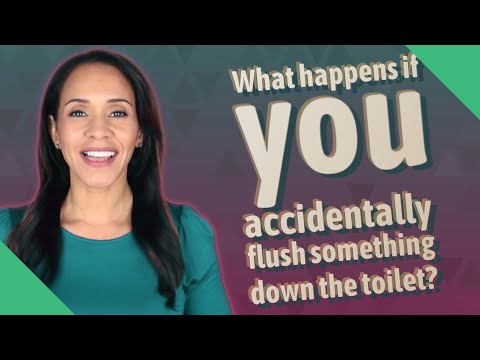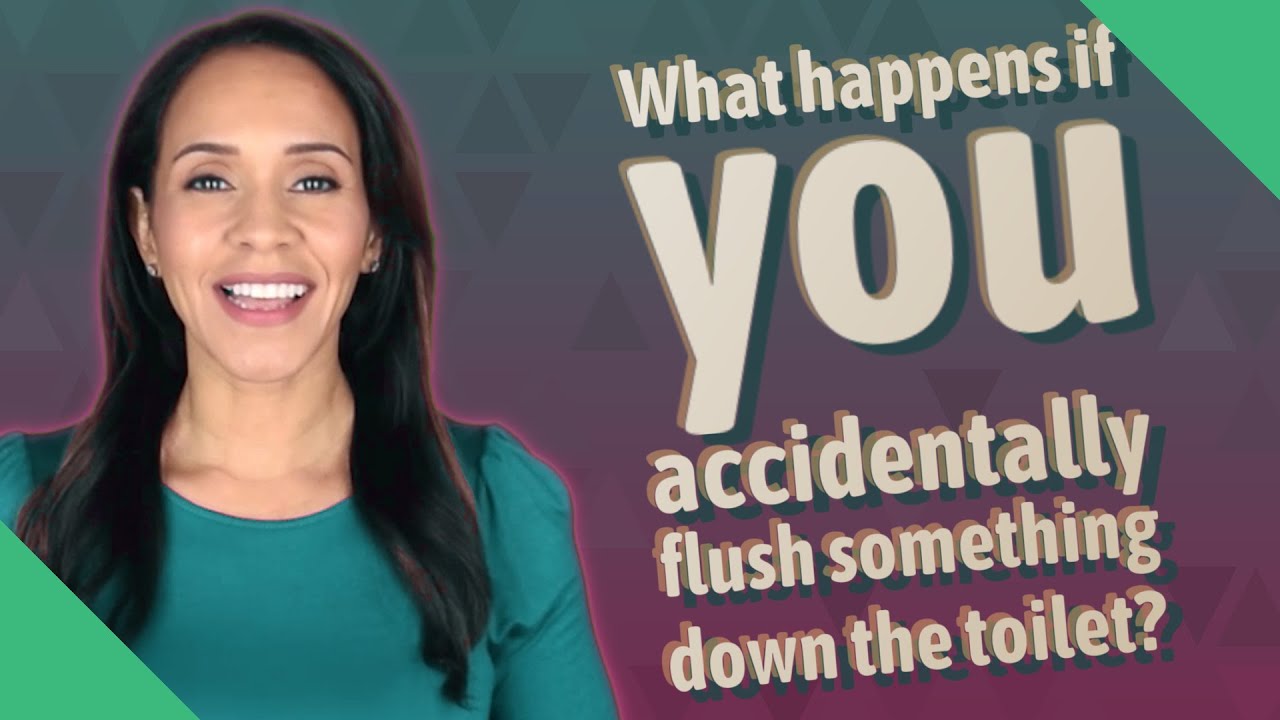Accidentally Flushed Something Down the Toilet? Curiosity piqued? We’ve all been there – that heart-stopping moment when an item slips from our grasp and disappears into the swirling abyss of the toilet bowl. But what really happens when you flush something down the toilet by mistake? Prepare to be captivated as we delve into the mysterious journey of these ill-fated objects. From the initial flush to the complex workings of the sewage system, every step will leave you with a sense of wonder. Discover the fate of that lost earring, the miniature toy, or even a precious keepsake, as they embark on an extraordinary adventure through a labyrinth of pipes, pumps, and treatment facilities. With each passing moment, the intensity builds as you realize the potential consequences of this innocent accident. Will the item clog the pipes, cause a backup, or join the ranks of countless others in a murky underworld? Delve into the captivating world of plumbing as we uncover the secrets behind the infrastructure that deals with such unexpected surprises. Prepare to be intrigued, astonished, and maybe even inspired to think twice before flushing something down the toilet again.

What Happens if You Accidentally Flush Something Down the Toilet?
| Item | Potential Consequences |
|---|---|
| Tissues | Tissues are designed to disintegrate when in contact with water, so they usually break down easily in the plumbing system. However, excessive flushing of tissues can lead to clogs in older or poorly maintained plumbing systems. |
| Cotton Balls | Cotton balls may seem harmless, but they are not biodegradable and tend to absorb water, making them prone to causing blockages in the pipes. Flushing them down the toilet can lead to clogs and potential damage to the sewage system. |
| Feminine Hygiene Products | Flushing feminine hygiene products, such as tampons or pads, down the toilet can create serious plumbing issues. These products are not designed to break down quickly and can cause blockages in the pipes, leading to sewage backups and costly repairs. |
| Wet Wipes | While marketed as “flushable,” wet wipes do not disintegrate like toilet paper. They can accumulate in the sewer system, causing blockages and clogs. The accumulation of wet wipes in the sewage system has become a significant environmental concern in recent years. |
| Medication | Flushing medications down the toilet can have detrimental effects on the environment. Pharmaceuticals can contaminate water sources, harm aquatic life, and disrupt ecosystems. It is recommended to dispose of medications through proper take-back programs instead of flushing them. |
| Jewelry or Small Objects | Accidentally dropping jewelry or small objects down the toilet can cause immediate clogs or blockages. Retrieving these items can be challenging and may require professional assistance. Moreover, attempting to flush them down further can worsen the plumbing issue. |
“Down the Drain: Unveiling the Consequences of Accidental Toilet Flushing”
What Happens if You Accidentally Flush Something Down the Toilet?
Flushing things down the toilet that do not belong there is a common occurrence in many households. Whether it’s a small toy, a piece of jewelry, or even something more substantial like a cell phone or a sanitary pad, accidents happen. However, it’s important to know the consequences of such actions, as they can lead to serious plumbing issues and costly repairs. In this article, we will explore what happens when you accidentally flush something down the toilet and why it’s crucial to avoid doing so.
1. Blockage
Flushing objects that are not meant to go down the toilet can lead to blockages in your plumbing system. These objects may get stuck in the pipes, causing a backup of waste and water. A common sign of a blockage is when the toilet does not flush properly or takes longer than usual to drain. In some cases, the blockage can be easily cleared by using a plunger or a plumbing snake. However, more severe blockages may require professional assistance, which can be costly.
2. Damaged Pipes
When you flush something down the toilet that is too large or solid, it can cause damage to the pipes. The force of flushing can create pressure and potentially crack or break the pipes, leading to leaks and water damage. Additionally, if the object gets lodged in the pipes, it can cause the pipes to burst, resulting in even more extensive damage. Repairing damaged pipes can be a time-consuming and expensive process, making it essential to avoid flushing anything other than toilet paper and human waste.
3. Clogged Sewer Lines
If an object manages to make its way past your home’s plumbing system, it can cause clogs in the sewer lines. These clogs can affect not only your household, but also the entire sewer system in your area. When sewer lines become clogged, it can lead to sewage backups and overflows, resulting in health hazards and environmental contamination. Municipal authorities may have to step in to resolve the issue, which can be a lengthy and costly process.
4. Expensive Repairs
Accidentally flushing something down the toilet can lead to expensive repairs. Whether it’s fixing a blocked toilet, replacing damaged pipes, or unclogging sewer lines, these repairs can quickly add up. In some cases, homeowners insurance may cover part of the cost, but it’s always best to avoid the situation altogether. Taking preventative measures, such as educating household members about what can and cannot be flushed, can save you from the financial burden of repairs.
5. Environmental Impact
Flushing objects down the toilet not only affects your plumbing system but also has an environmental impact. When items that do not decompose, such as plastics or metals, end up in the sewer system, they can contaminate water sources and harm aquatic life. Additionally, the energy and resources required to repair the damage caused by flushing non-flushable items contribute to environmental degradation. By being mindful of what goes down the toilet, we can reduce our ecological footprint and protect our natural resources.
In conclusion, accidentally flushing something down the toilet can have severe consequences. From blockages and damaged pipes to clogged sewer lines and expensive repairs, the aftermath of such actions can be both inconvenient and costly. Moreover, the environmental impact should not be overlooked. By educating ourselves and our households about proper toilet etiquette and avoiding flushing anything other than toilet paper and human waste, we can prevent these issues and maintain a well-functioning plumbing system.

